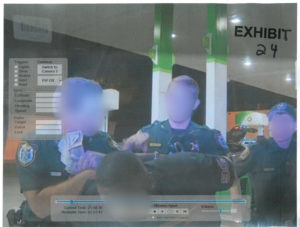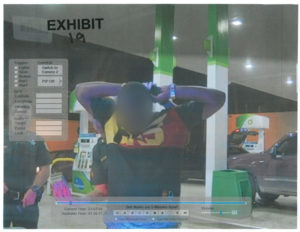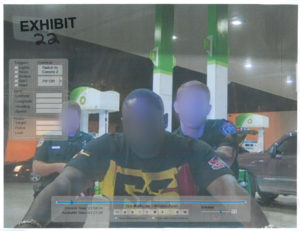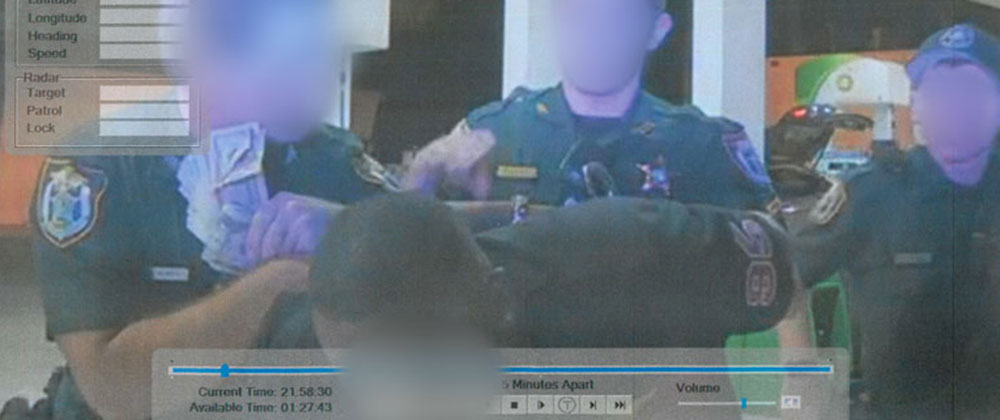Have You Been Arrested on Fort Pierce Drug Trafficking Charges?
Being charged with drug crimes in Florida can be frightening. The state treats drug crimes severely. However, simply being charged does not necessarily mean that you will be convicted. If you retain an experienced criminal defense lawyer, your charges might even be dismissed. Recently, Fort Pierce criminal lawyer Jonathan Jay Kirschner won the dismissal of drug trafficking charges against his client after winning a motions hearing.
Man Arrested on Fort Pierce Drug Trafficking Charges
A man was approached by the police at a gas station. The police were there to investigate someone else for allegedly following the man’s car too closely. While the police were talking to the man, they told him they needed to search him. The man told the police that he didn’t have anything on him, and the officer told him that the officer was going to search him and didn’t need his permission. The man responded by telling the officer that he didn’t want to be searched and that he was not the person that the officer had pulled over. The man refused again to be searched before finally agreeing after being repeatedly coerced by the officer.
 The officer asked the man what was in his pocket, and the man told him he had cash in his pocket. The officer pulled the money out of his pocket, and the man told him it wasn’t illegal to have money. The police officers then manhandled him to the ground and subsequently found drugs by performing a rectal search. The entire encounter was captured by video and took slightly more than a minute.
The officer asked the man what was in his pocket, and the man told him he had cash in his pocket. The officer pulled the money out of his pocket, and the man told him it wasn’t illegal to have money. The police officers then manhandled him to the ground and subsequently found drugs by performing a rectal search. The entire encounter was captured by video and took slightly more than a minute.
The man was charged with multiple drug offenses, including trafficking between four to less than 14 grams of hydromorphone, possessing opiate pain killer, trafficking 28 but less than 200 grams of methamphetamines, and possession of fentanyl. He was facing between seven and 70 years in prison, and he retained Fort Pierce criminal lawyer Jonathan Jay Kirschner to defend him against his serious charges. He was facing between seven and 70 years if he was convicted of his charges.
Motion to Suppress Filed
 Upon reviewing the police reports, video, and other evidence, attorney Jonathan Jay Kirschner realized that the police’s search was illegal in violation of the 4th Amendment to the U.S. Constitution. In the motion, he argued that the police did not have grounds to stop the man based on the stop of the other motorist for following too closely because the officers did not have reasonable suspicion to suspect him of committing a crime or violation. He also argued that the defendant did not give valid consent to the police to search him. Under Ramirez v. State, 739 So.2d 568 (Fla. 1999), attorney Kirshner argued that any consent that the defendant gave was simply him acquiescing to police authority and so was not valid.
Upon reviewing the police reports, video, and other evidence, attorney Jonathan Jay Kirschner realized that the police’s search was illegal in violation of the 4th Amendment to the U.S. Constitution. In the motion, he argued that the police did not have grounds to stop the man based on the stop of the other motorist for following too closely because the officers did not have reasonable suspicion to suspect him of committing a crime or violation. He also argued that the defendant did not give valid consent to the police to search him. Under Ramirez v. State, 739 So.2d 568 (Fla. 1999), attorney Kirshner argued that any consent that the defendant gave was simply him acquiescing to police authority and so was not valid.
At the motion hearing, the prosecutor argued that the search and detention of the man were proper and that the defendant’s windows were tinted too darkly and he was under the influence. The prosecutor also argued that the man consented to the search.
The court considered the photographs, video, testimony, and the case law presented by both the prosecutor and attorney Kirschner. It found that the man’s consent was not free and voluntary and was instead simply his mere acquiescence to the police officer’s authority. The court granted Attorney Kirshner’s motion to suppress the evidence, which included the drugs discovered by the police during the search. Since the drugs were suppressed, it left the prosecutor with no other choice than to dismiss the man’s drug charges and criminal case.
When “Consent” is not Valid
 Consent is not considered to be valid if it is forced by the police. Police officers can force people to agree to a search in one of the following ways:
Consent is not considered to be valid if it is forced by the police. Police officers can force people to agree to a search in one of the following ways:
- Threatening the person
- Saying that the officer will search anyway if the person won’t consent
In either of these two scenarios, any consent given is not knowing, voluntary, or freely given and is invalid. Under the second scenario, it is called coercion to the apparent authority of the officer. When a judge finds that a person’s consent to search was coerced by the police, all of the evidence found during the search will be suppressed as unconstitutionally gathered.
Speak to an Experienced Drug Defense Lawyer
If you have been charged with drug offenses after a warrantless search of your person, vehicle, or home, you should speak to Fort Pierce criminal defense lawyer Jonathan Jay Kirschner as soon as possible. Mr. Kirschner has decades of experience defending against serious drug crimes, including Fort Pierce drug trafficking charges. Contact us today to schedule a consultation by calling the law firm of Jonathan Jay Kirschner, Esq., & Associates, LLC at (772) 489-8501.




